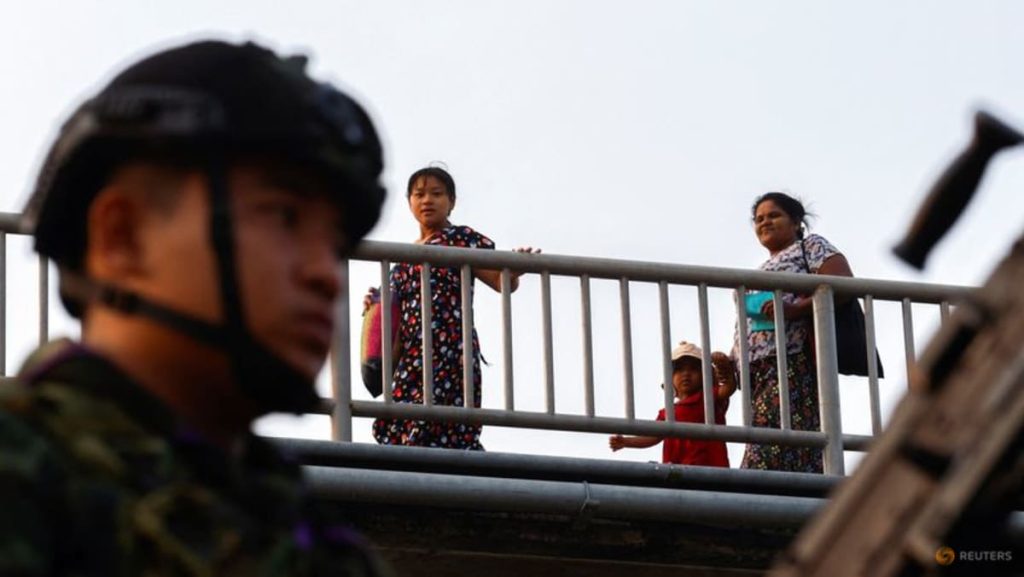underwent heavy fighting between the military and ethnic Karen rebels. Refugees poured across the narrow, tree-lined border, many carrying meager possessions such as blankets, cooking pots, and bags of clothes. Myanmar’s military launched airstrikes on the rebels in retaliation for their attacks, causing panic among residents in border areas. The clashes have fueled concerns about an escalation of violence in Myanmar, where the military staged a coup in February, ousting the elected government and sparking nationwide protests.
The situation in Myanmar has deteriorated rapidly since the military seized power, plunging the country into a state of turmoil and uncertainty. The violence has displaced thousands of people, forced civilians to flee their homes, and created a humanitarian crisis along the border with neighboring countries like Thailand. The conflict between the military and ethnic rebel groups has intensified, leading to a surge in hostilities and causing widespread fear and panic among the population. The recent fighting in Myawaddy has further escalated tensions and prompted many residents to seek safety across the border.
The influx of refugees into neighboring countries like Thailand has put a strain on resources and infrastructure, as local authorities struggle to accommodate and support the growing number of displaced people. Humanitarian organizations are working to provide aid and assistance to those in need, but the scale of the crisis is overwhelming, with limited resources and funding available to address the needs of all the refugees. Many refugees are living in makeshift camps or temporary shelters, lacking access to basic necessities such as food, water, and healthcare. The situation is dire, and urgent action is needed to prevent further suffering and instability in the region.
As the conflict in Myanmar continues to escalate, there are growing concerns about the potential for a full-blown civil war and widespread violence. The military’s crackdown on dissent and the targeting of ethnic minority groups have fueled resentment and resistance, leading to a cycle of violence and unrest. The international community has condemned the military’s actions and called for a peaceful resolution to the crisis, but so far, diplomatic efforts have failed to bring about a solution. The situation remains volatile and unpredictable, with no clear end in sight.
The plight of displaced people in Myanmar highlights the urgent need for humanitarian assistance and support from the international community. The refugees crossing into neighboring countries are in desperate need of shelter, food, water, and medical care, as they face uncertain and precarious situations. Humanitarian organizations are working tirelessly to provide aid and relief to those affected by the conflict, but their efforts are hampered by limited resources and access restrictions. More funding and support are needed to address the growing humanitarian crisis and prevent further suffering and loss of life.
In conclusion, the situation in Myanmar is dire, with ongoing violence, displacement, and instability causing immense suffering and hardship for the civilian population. The recent clashes in Myawaddy and the influx of refugees into neighboring countries like Thailand are a stark reminder of the urgent need for international intervention and support. The international community must step up its efforts to address the crisis, provide humanitarian assistance to those in need, and work towards a peaceful resolution to the conflict. The future of Myanmar hangs in the balance, and immediate action is needed to prevent further escalation of violence and protect the lives and rights of the people affected by the crisis.















